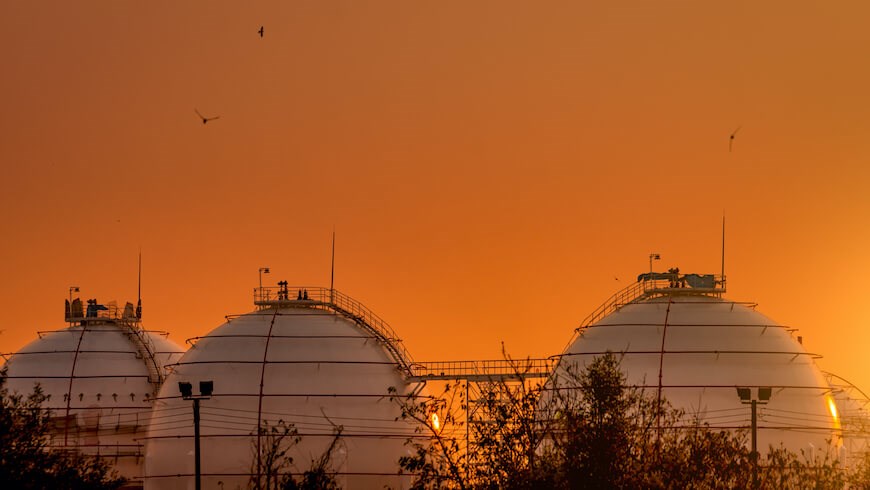Advantages of Natural Gas
Natural gas is a versatile and environmentally friendly source of energy that offers numerous advantages over other conventional fuels. In this article, we will explore the various benefits of natural gas and how it can contribute to a sustainable future.
Cost-Effectiveness
Natural gas is known for its cost-effectiveness compared to other energy sources. It is relatively abundant and widely available, making it more affordable for both residential and industrial use. The efficient combustion process of natural gas also ensures that a higher proportion of energy is converted into useful work, making it an economical choice for heating, cooking, and electricity generation.
Environmental Friendliness
One of the key advantages of natural gas is its lower environmental impact compared to traditional fossil fuels such as coal and oil. Natural gas combustion produces significantly fewer greenhouse gas emissions, including carbon dioxide (CO2), sulfur dioxide (SO2), and nitrogen oxides (NOx). This makes it a cleaner option and helps reduce air pollution, contributing to improved air quality and mitigating climate change.
Abundance and Reliability
Natural gas reserves are abundant, ensuring a reliable and consistent supply for years to come. This stability in supply makes natural gas a dependable energy source, reducing the risk of price volatility and energy shortages. Additionally, advancements in extraction technologies, such as hydraulic fracturing (fracking), have unlocked vast reserves of natural gas, further increasing its availability.
Versatility and Flexibility
Natural gas offers versatility in its applications, making it suitable for a wide range of uses. It is commonly used for heating homes and water, cooking, and generating electricity. Furthermore, natural gas can be used as a feedstock in various industrial processes, such as the production of fertilizers, chemicals, and plastics. Its flexibility allows for easy integration into existing infrastructure and provides opportunities for innovative uses in the future.
Efficiency and Performance
Natural gas is highly efficient in energy conversion, making it an excellent choice for power generation. Combined-cycle gas turbine (CCGT) power plants, which utilize both gas and steam turbines, can achieve high levels of efficiency, exceeding 60%. This means that more energy can be generated from the same amount of natural gas, resulting in reduced fuel consumption and lower emissions.

In conclusion, natural gas offers numerous advantages that make it a favorable choice for energy production. Its cost-effectiveness, environmental friendliness, abundance, versatility, and efficiency make it a valuable resource for a sustainable future. By harnessing the benefits of natural gas and promoting its usage, we can reduce our dependence on traditional fossil fuels and move towards a cleaner and greener energy landscape.
Frequently Asked Questions about the Advantages of Natural Gas
1. What are the main advantages of natural gas?
Natural gas is a versatile, clean-burning, and efficient energy source that offers numerous benefits. It is abundant, affordable, and has lower emissions compared to other fossil fuels.
2. How is natural gas considered a versatile energy source?
Natural gas can be used for various purposes such as heating homes, generating electricity, fueling vehicles, and even powering industrial processes.
3. What makes natural gas a clean-burning fuel?
When natural gas is burned, it produces fewer harmful pollutants like sulfur dioxide, nitrogen oxides, and particulate matter compared to coal or oil. This contributes to better air quality and reduces environmental impacts.
4. How does natural gas contribute to energy efficiency?
Natural gas appliances and equipment are highly efficient, providing better energy conversion rates and reducing energy wastage. This leads to lower energy consumption and cost savings.
5. Is natural gas a cost-effective energy option?
Yes, natural gas is often more affordable compared to other energy sources like oil or electricity. Its availability and competitive pricing make it an economically advantageous choice for consumers.
6. Does natural gas help reduce greenhouse gas emissions?
Compared to coal or oil, natural gas combustion produces lower carbon dioxide emissions. It is considered a transitional fuel that can help reduce greenhouse gas emissions while transitioning to cleaner energy sources.
7. Are there any economic benefits associated with natural gas?
Natural gas production and distribution create job opportunities, stimulate economic growth, and contribute to energy independence. It also helps diversify the energy mix, reducing reliance on imported energy.
8. Can natural gas be used in transportation?
Yes, natural gas can be used as a fuel for vehicles. Compressed Natural Gas (CNG) and Liquefied Natural Gas (LNG) are used as alternative fuels in transportation, offering environmental and economic advantages.
9. Does natural gas provide a reliable energy supply?
Natural gas is known for its reliability and uninterrupted supply. It is readily available through pipelines, ensuring a consistent energy source for residential, commercial, and industrial needs.
10. How does natural gas compare to other fossil fuels in terms of reserves?
Natural gas reserves are abundant globally, and new discoveries continue to expand the known reserves. This ensures a long-term and stable supply of natural gas for future generations.
11. Can natural gas be used in conjunction with renewable energy sources?
Absolutely! Natural gas can complement renewable energy sources like solar and wind power. It can provide backup power during intermittent renewable energy generation or serve as a transitional fuel until renewable technologies become more widespread.
12. Does natural gas offer energy security?
Natural gas can enhance energy security by reducing dependence on foreign oil and diversifying the energy mix. It provides a domestic energy source that is less susceptible to geopolitical tensions and price fluctuations.
13. Are there any technological advancements in natural gas extraction?
Technological advancements, such as hydraulic fracturing (fracking) and horizontal drilling, have made it possible to extract natural gas from previously inaccessible reserves. This has significantly increased the availability of natural gas.
14. Can natural gas be used in conjunction with renewable natural gas?
Yes, renewable natural gas (RNG) is produced from organic waste sources like landfills, wastewater treatment plants, and agricultural waste. It can be blended with traditional natural gas, further reducing greenhouse gas emissions.
15. Are there any environmental benefits associated with natural gas?
Yes, natural gas emits lower levels of air pollutants, reduces smog formation, and has a lower carbon footprint compared to coal or oil. It also plays a role in reducing water pollution as it does not require large-scale water usage for extraction or combustion.




